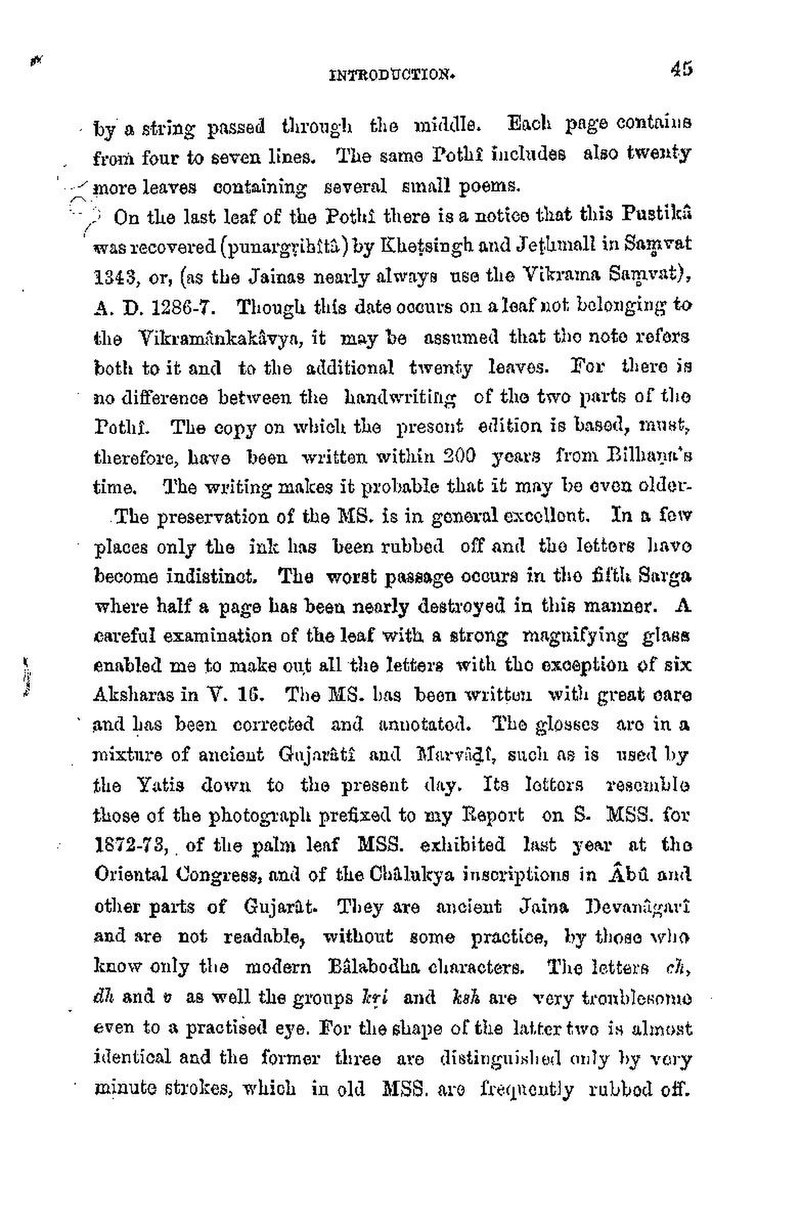}
INTRODUCTION.
by a string passed through the middle. Each page contains
from four to seven lines. The same Pothi includes also twenty
more leaves containing several small poems.
On the last leaf of the Pothi there is a notice that this Pustikâ
was recovered (punargrihita) by Khetsingh and Jethmall in Samvat
1343, or, (as the Jainas nearly always use the Vikrama Samvat),
A. D. 1286-7. Though this date occurs on a leaf not belonging to
the Vikramankakâvya, it may be assumed that the note refers
both to it and to the additional twenty leaves. For there is
no difference between the handwriting of the two parts of the
Pothi. The copy on which the presont edition is based, must,
therefore, have been written within 200 years from Bilhant's
time. The writing makes it probable that it may be even older-
The preservation of the MS. is in general excellont. In a few
places only the ink has been rubbed off and the letters have
become indistinct. The worst passage occurs in the fifth Sarga
where half a page has been nearly destroyed in this manner. A
careful examination of the leaf with a strong magnifying glass
enabled me to make out all the letters with the exception of six
Aksharas in V. 16. The MS. bas been written with great care
and has been corrected and annotated. The glosses are in a
mixture of ancient Gujarati and Marvadi, such as is used by
the Yatis down to the present day. Its lottors resemble
those of the photograpli prefixed to my Report on S. MSS. for
1872-73, of the palm leaf MSS. exhibited last year at the
Oriental Congress, and of the Chalukya inscriptions in Âbû and
other parts of Gujarat. They are ancient Jaina Devanagari
and are not readable, without some practice, by those who
know only the modern Bâlabodha cliaracters. The letters ch,
dh and as well the groups kri and ksh are very troublesome
even to a practised eye. For the shape of the latter two is almost
identical and the former three are distinguished only by very
minute strokes, which in old MSS. are frequently rubbod off.
पृष्ठम्:विक्रमाङ्कदेवचरितम् - बिल्हण.pdf/४९
एतत् पृष्ठम् अपरिष्कृतम् अस्ति

